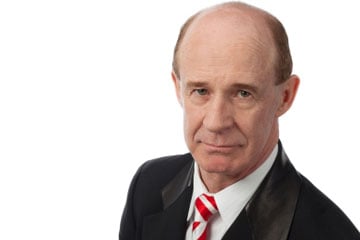In the wake of Chief Justice Beverley McLachlin’s
announcement that she will be retiring from the Supreme Court of Canada in December, the legal profession is left to wonder who will take on the role.
Widely respected and well known for her outspokenness on issues such as access to justice, free speech, diversity and inclusive leadership, 73-year-old McLachlin will be stepping down after 28 years on the Supreme Court, with 17 of those as presiding judge. Prime Minister Justin Trudeau will appoint a new chief justice and also choose another judge to replace McLachlin on the bench. Under the new appointments process, the prime minister will be provided a short list of names from an advisory committee and will likely make the selection from that list.
Emmett Macfarlane, assistant professor of political science at the University of Waterloo, says the replacement is very difficult to predict, and while there are no hard-and-fast rules there are a couple of what he calls “quasi-conventions” surrounding the elevation of someone to the role of chief justice.
One is “simply, straight up seniority,” but he notes it does depend on how close the senior judges are to retirement themselves.
“For example, with our current court, I’d be surprised if Rosalie Abella were elevated given that she’s only a few years away from retirement herself and there might be a bit of an argument for elevating someone who will be around for a while just in terms of stability for the court.”
Eugene Meehan, a lawyer at Supreme Advocacy LLP in Ottawa who specializes in Supreme Court of Canada matters and is a former executive legal officer to the court, agrees that retirement in a foreseeable number of years “may take some candidates out of the mix” despite all of them being highly qualified for the position.
The other quasi-convention is alternation between English and French chief justices or even Quebec versus the rest of Canada, Macfarlane says.
“I say that’s a quasi-convention because it’s been broken even in the post-Second World War, modern period of the court,” he adds. “I wouldn’t call it a clear rule, but it’s certainly something that I suspect will be given some thought.”
Justice Richard Wagner is the senior Quebec judge on the court and “in my mind, that certainly makes him a plausible candidate,” Macfarlane says.
Meehan agrees, saying there’s a lot of discussion in the legal community focused on Wagner as a good candidate for the next chief justice. Meehan calls him “the Goldilocks candidate.”
Wagner is “right in the middle” when it comes to seniority, strong in both English and French and has demonstrated his skills in both common law and civil cases, Meehan says.
Wagner also hails from Quebec, and holding with the quasi-convention, that’s the province from which the next chief justice should come. Supreme Court Justices Clément Gascon and Suzanne Côté, along with Wagner, are also from Quebec.
As for the rest of the Supreme Court justices, Abella, Michael Moldaver and Andromache Karakatsanis come from Ontario and Russell Brown is from Alberta. Malcolm Rowe comes from Newfoundland and Labrador.
Beyond the conventions, “we have to consider other factors,” says Macfarlane.
“This prime minister is very vocal about his own feminism and feminist credentials and he might be interested in elevating another woman to the position of chief justice. In terms of filling McLachlin’s seat on the court, that new appointment will very likely be a woman in order to maintain the 5-4 gender balance on the court. Given we still have never had five of the nine justices be women, the prime minister might think to balance that out by elevating a woman to the chief justice position.”
One thing that’s never happened in Canada but is the tradition in the United States is to have the new person appointed to the court elevated straight to the chief justice position. Macfarlane says he’d be very surprised to see that happen, saying it’s unlikely because it would likely make some people “quite unhappy” and actually offend the justices currently on the court.
“But it would be some out-of-the-box thinking if the prime minister wanted to appoint the first indigenous justice out of the West and then appoint that person directly to chief,” he adds. “That would certainly make a big splash.”
Whatever the speculation is, Meehan says the priority for the next chief justice appointment will be finding someone who is a consensus builder and can keep the court’s current stability.
“People may try to label certain candidates as activist or conservative, but I don’t think those or other labels are helpful,” he says. “We have a super-strong Supreme Court, one that’s willing to listen to rational arguments and develop the law carefully and incrementally.”
He also notes the right candidate will require “strong aquatic skills,” saying the new chief justice will need “the poise and dexterity of the dolphin on the one hand [and] the tenacity and armoured skin of the crocodile on the other hand.”
“It’s a tough job,” Meehan says. “Picking one potential candidate among various potential candidates is for horse races — this isn’t; it’s way too important.
“The practical reality is every single judge sitting on that court is qualified to be chief justice and would bring their own unique blend of skill and talent.”

